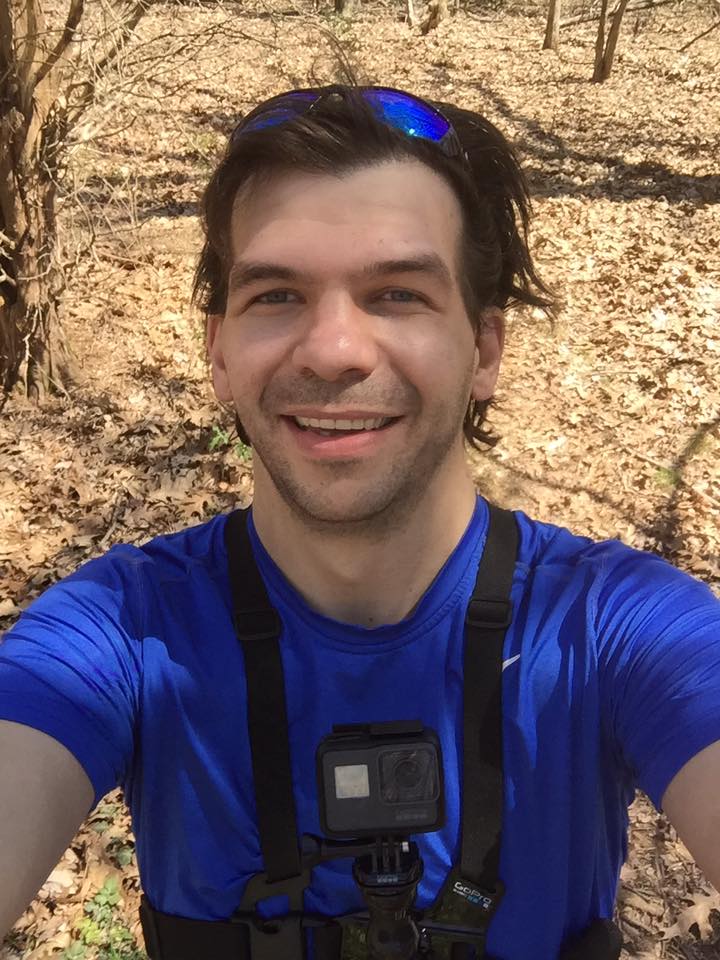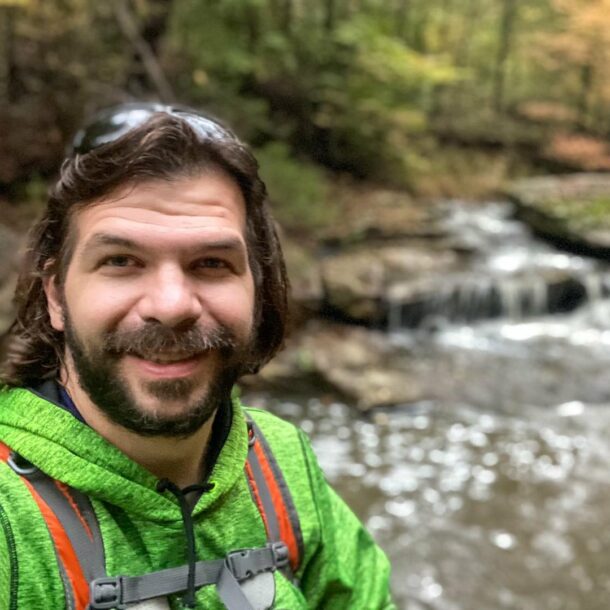Lightening Your Load
while
Hiking and Backpacking
Lightening your load will reduce the weight you must carry while hiking or overnight backpacking through the forest. Most of us hikers deal with the issue of weight. Our packs get loaded with weight and sometimes it can be a real pain, literally. Sometimes we might not even be able to handle it and thus, our hiking trip get ruined in the process. We want to pack less but we know there is a such thing as packing too little. So, I wanted to write this article to give you ideas on how to lighten your load and reduce the weight of your pack when you are out hiking and backpacking.
This is a Patreon exclusive articles meaning only Patreon Supporters of Hiking with Shawn will be able to read this article. This feature is a way of me saying Thank You for being a supporting member!
Day Hiking Gear Tips for Lightening your Load
Let’s take a look at what you would be carrying on a day hike and how you could lighten the load a little bit:
- Backpack: When choosing a backpack, try to choose one that has features to help reduce stress and strains that could occur on your while hiking. I really enjoy packs with ventilation in between my back and the pack. This allows my sweat to dry a bit faster as long as the frame against my back is breathable. You can also get lighter weight packs which will be helpful. Just remember, a pack that hold a smaller number of liters will be holding less. But, the smaller the liters, the lighter the pack will be.
- Clothing: Don’t just wear a heavy pair of jeans and a sweatshirt when hiking. Instead, layer up and choose clothing that is lightweight and breathable. Choose clothing you can shed off if you get too warm but choose a lightweight construction so that it doesn’t add as much extra weight to your pack when carrying it. I tend to stick with compression gear that you would use while running. It is so lightweight that I can barely tell that I am carrying it. I try to choose hiking-specific outer clothing as it is usually made for the elements and for weight reduction.
- Shoes: Try to choose the right pair of shoes for the right type of hike. I have waterproof hiking boots, but they are heavier. I only wear them if I plan to get my feet wet or if it is cold and during the winter. Otherwise, I use a much lighter weight hiking shoe. Be careful what use as a hiking boot or shoe. You don’t want to wear heavy hip waders if you never even once touch a water body or swamp. Don’t wear more than you will actually need! Also, do you need additional footwear? If you need something to cross a creek-look into crocs or even lighter, waterproof socks!
- Food/Drink: So, in my opinion, the heaviest item in your pack should be your water. It is so important to have plenty of drink while hiking. Water is more important than food, but they go hand in hand for sure. With that being said, if you know creeks will be full of running water, you might sacrifice a water bottle and replace it with a water filter. Make sure you know how to use and have tested the filter before you go hiking! For food, bring trail bars, jerky, etc. – stuff that doesn’t weight a lot. Make sure you hydrate and eat before your trip!
- Navigation: Use your phone as a GPS and bring a power brick to charge it if needed. You could use your phone and an additional dedicated GPS unit, but a power brick addition will cost you extra weight. For maps, just bring the single map for the area you will be in. Compass? Get a simple plastic one. No need for a heavy compass when the plastic ones will do the same thing 99.999% of the time.
- First Aid: Open your first aid kit. Take out items that you don’t know how to use or never imagine you will use. Now, put all the items you need in a Ziploc bag. This will actually reduce a good portion of weight. You could double bag it for water resistance and the weight should still be better than it was.
- TP: Toilet paper can be heavy even though it doesn’t feel like it. You can reduce its weight by only bringing an amount you foresee using. How often do you need to use TP while hiking? How much of it do you usually use? A standard roll usually lasts me a few months. Just take what you plan to like need for those restroom breaks that might occur. Try to go before your trip as well so that you lesson the chance of needing to go again.
- Tools: What tools do you actually need with you? A knife? A knife is a good tool to have but how big of a knife do you actually need? Will a simple boot-style or pocket-style do the same as a heavy machete? Do you need a metal hand shovel? Plastic ones are just as good and way lighter.
- Flashlights: It is defiantly important to have light with you while hiking, even on day hikes. You never know what situation might make you stay longer than intended. But do you need the biggest flashlight possible? Go for a smaller light that weighs less. 1,000-lumens is nice, but something tells me 3,00-lumens will do everything you need just the same. Don’t bring a huge pack of extra batteries, only bring what you’d need as spare batteries. Throw them in the first aid kit Ziploc bag!
- Waterproof Cases: So many folks make the mistake of buying those large, heavy plastic, waterproof cases to put their stuff in. A simple Ziploc bag will do the same as those heavy cases and they weigh so much less. I know they’re not environmentally friendly but just hang on to them and only use them until they are unusable. There is nothing wrong with wiping out a Ziploc bag and re-using it.
Backpacking Gear Tips for Lightening your Load
Now let’s look at extra gear that you would take with you while backpacking or overnight hiking:
- Tent: This is usually one of those things that takes up a lot of weight. If you’re carrying a tent for you and other people to share-split the weight and have the other person or people carry some of it. If you can get rid of things you don’t need like extra stakes or ropes you won’t use, do so! If you can take the needed poles, stakes and ropes and put them in the same bag (without individual bags to hold each), do so as well. If you can sleep in a hammock, consider that as an option. There are always tarps too if you like that sort of camping. If you know it will not be raining-then don’t pack the rainfly. Only pack what you will be using! Higher end ultra-light tents are available but usually cost way more.
- Sleeping Bag: This is one of those things that if you spend more money, you can find a much lighter sleeping bag. Alternatively, if the weather isn’t going to be that cold, you can pack sheets or quilts that weigh less than a sleeping bag. Simple layers might actually be all you need as well. Bug nets can keep stuff off you while you sleep.
- Kitchen: Thinking about how you will be cooking and what you will use will help reduce weight. Do you need a cast iron skillet? I take a pocket rocket stove, a small canister of fuel and one cooking pot that I will use for coffee and food after using it to boil water or cook food. I have one spork that I use for everything as well. No need for more pots and cups when I can use one and simple wipe it out for using for another reason. Full mess kits are going to add extra weight and you’ll often find that you rarely use all of its features.
- Hygiene Items: Can you wash your hair and body with the same soap? If so, do so. No need for two different products. Get a small container that you can use on both. Get a small deodorant stick. Get a small tube of toothpaste and a small toothbrush. Put a couple of wet wipes in a Ziploc bag. Only bring the products you know you will completely use while out in the field.
- Camera Gear: This is where I usually fail. I bring way too much camera gear with me. I bring more batteries for my GoPro than I’ll ever use. I bring mounts and accessories that I’ve never used once. I even carry batteries to another camera that I rarely use anymore. I have added additional weight that I don’t need. Don’t be like me, LOL! Only pack the gear you plan to use.
Well, that is it for my advice on weight and lightening your load while hiking and backpacking. I hope this article is helpful and I plan more great articles for Patreon members in the future. Thank you for reading it and I’ll see you on the trail!

Shawn J. Gossman
Host
Shawn is the founder and host of the YouTube Channel, Hiking with Shawn as well as Hiking with Shawn LLC. Shawn hikes, backpacks and visits various forested areas in the Shawnee National Forest, local state parks and other areas promoting outdoor recreational activities to obtain video to show to locals and non-locals alike. Please support Shawn’s efforts by sharing this post and leaving a comment below.


Trackbacks/Pingbacks